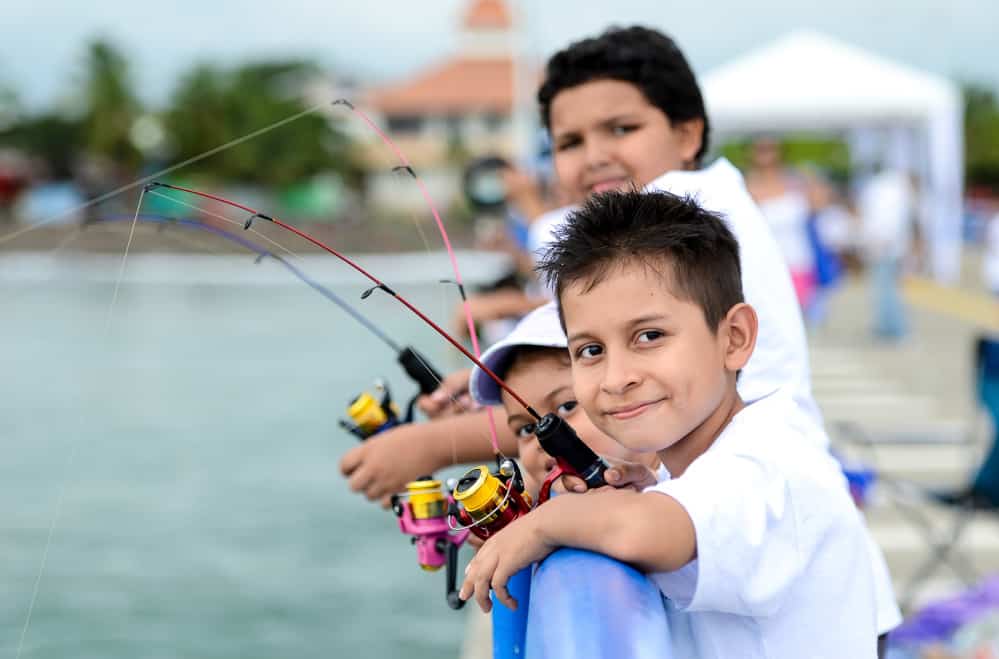The Costa Rican Fishing Federation (FECOP) kicked off a new campaign Tuesday at the Radisson Hotel in San José to raise awareness about imperiled fisheries in Costa Rica and the world.
“More than 80 percent of fisheries worldwide are totally exploited, over-exploited or exhausted,” FECOP Director Enrique Ramírez told a crowd of fishermen, activists, journalists and government officials at the campaign’s inauguration.
“Between 2000 and 2007, the total volume of fisheries production in Costa Rica dropped by 40 percent. In 2012 that drop will be 50 percent or more,” he said.
The responsible fishing campaign aims to collect “a sea” of 25,000 signatures to demonstrate wide support for the protection of fisheries resources in the country and convince the Legislative Assembly to order authorities responsible for fisheries management to adhere to the Code of Conduct for Responsible Fishing, as laid out by the United Nations Food and Agriculture Organization (FAO).
The campaign features posters and TV and radio spots with photos of mutilated sharks, dead fish and sea turtles caught and drowned by longlines used by industrial fishing fleets. World women’s kite surfing champion and environmentalist Melissa Gil is throwing her support behind the campaign, too.
FECOP is made up of representatives of Costa Rica’s sportfishing, small-scale fishing and conservation communities. The group advocates for the establishment of areas dedicated to “responsible,” or non-industrial, fishing as well as tighter regulation of industrial fleets, which are overseen by the Costa Rican Fisheries Institute (Incopesca).
“Marine areas of responsible fishing are the intelligent answer by coastal communities organized in the face of the deterioration of fish stocks, food insecurity, lack of regulations and lack of marine resources management,” Ramírez said.
In December, Costa Rican President Laura Chinchilla swore in a government commission to evaluate management of the country’s marine resources. Without specifically mentioning Incopesca, Chinchilla said, “The country’s seas generate different goods and services associated with a variety of activities such as commercial [fishing] and sportfishing, aquaculture, shipping, marketing and transit routes, marine merchant port unloading, tourism, marinas and docks, whale watching and research, and conservation of marine biodiversity. … [Costa Rica must] resize its vision and broaden its perspective in relation to marine resources” to ensure their protection and sustainable use in the future (TT, Dec. 21, 2011).
Conservation groups have long criticized Incopesca on numerous issues, including sea turtle bycatch by shrimping fleets, enforcement of anti-shark-finning regulations and the makeup of the Incopesca board of directors, which conservationists say presents conflicts of interest, as many board members are involved in businesses in the fishing and shrimping industries.
Incopesca President Luis Dobles has called those accusations “absolutely false” and said he welcomed the presidential commission’s analysis. In December, he told The Tico Times that the commission “is not a commission of intervention against Incopesca.”
“It is a commission to analyze the management of the Costa Rican fishing sector and the governance of our seas. Hopefully, the result of the commission’s analysis will be helpful because there are many situations, many problems and many topics that can be tackled in relation to how to improve the encouragement and development of conservation and the responsible use of our marine resources,” he said (TT, Dec. 9, 2011).
Dobles also explained that Incopesca is charged with a daunting task in terms of inspecting catches of the country’s industrial fishing fleet with only 18 inspectors available for inspections at the country’s main fisheries offloading dock in Puntarenas, and just a handful of inspectors for other parts of the country.
Carlos Villalobos, a marine biologist associated with FECOP, acknowledged that Incopesca faces a tough slog in combating illegal fishing practices with so few inspectors. Villalobos spoke at the responsible fishing campaign kick-off about the state of Costa Rican fisheries, reiterating their precarious state and calling for better coordination between the institute and the Environment Ministry, which has the power to designate and enforce protected marine areas.
Environment Minister René Castro was on hand to support the campaign.
“We are beginning a process in which Costa Rica has been lagging,” Castro said. “Costa Rica has ignored for many years its oceans, its rivers and its wetlands and now is trying to raise awareness among citizens, businesses and institutions to rediscover the ‘blue’ Costa Rica that is almost unknown.”
The idea of a “blue” Costa Rica, or rather a blue agenda, is what the FECOP campaign is all about. The group is proposing six projects including the modification of fisheries legislation to fall more in line with FAO’s Code of Conduct for Responsible Fishing, the creation and strengthening of areas designated for “responsible fishing” only, public education projects on the state of marine resources, the promotion of small-scale fishing techniques to avoid incidental bycatch of immature fish or threatened species, support for national institutions in making responsible decisions regarding fisheries management and economic alternatives for fishing communities to improve economic returns while also protecting marine resources.
The group also wants to promote regulations on the length of longlines used by commercial fleets that can stretch for tens of kilometers behind boats and often result in bycatch of valuable species like marlin and sailfish. Those species along with other sportfishing species, according to studies by the University of Costa Rica, attract some 100,000 tourists who come to Costa Rica for sportfishing and generate 4,000 jobs directly and some 63,000 jobs indirectly. The industry is responsible for an estimated 2 percent of Costa Rica’s gross domestic product.





